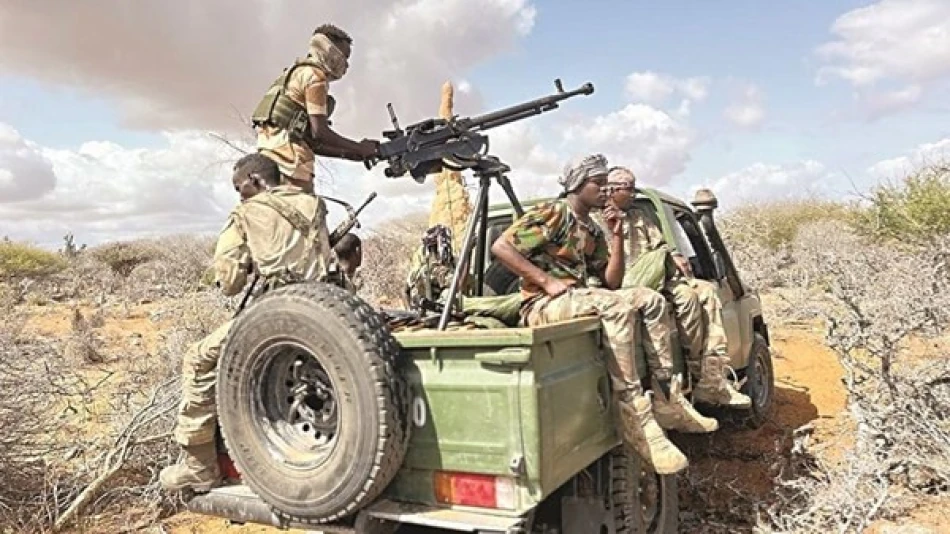
Somalia Reclaims Strategic City from Terrorists: A Major Victory in the Fight Against Extremism
Somali Forces Retake Strategic City in Major Blow to Al-Shabaab's Regional Control
Somali government forces and African Union peacekeepers have reclaimed full control of the strategically important city of Barawe from Al-Shabaab militants after more than a week of intense fighting, marking a significant victory in the ongoing campaign to weaken the terrorist group's territorial grip across southern Somalia.
Week-Long Battle Ends Al-Shabaab's Hold on Key Port City
The operation to retake Barawe in the Lower Shabelle region began on August 1st when the African Union Transition Mission in Somalia (ATMIS) launched what officials described as a "major offensive" against Al-Shabaab positions. The city's recapture represents one of the most significant territorial gains against the militant group in recent months.
According to Somalia's Defense Ministry, the joint operation involving Somali National Army forces and Ugandan troops serving under ATMIS resulted in the deaths of more than 100 Al-Shabaab fighters. Security forces are now conducting sweeping operations throughout the city and surrounding areas, having seized substantial quantities of weapons and ammunition left behind by retreating militants.
Strategic Importance Beyond Military Victory
Economic and Logistical Implications
Barawe's location in the Lower Shabelle region makes it a critical hub for both legitimate commerce and Al-Shabaab's revenue streams. The group has historically used coastal areas like Barawe to collect taxes from local businesses and control trade routes, generating millions in annual revenue. By severing this connection, Somali forces have struck at the economic foundation that enables Al-Shabaab's operations across the region.
The city's proximity to agricultural areas also means its control affects food security and humanitarian access—factors that become particularly crucial during Somalia's recurring drought cycles.
Broader Counter-Terrorism Context
This victory comes as part of a renewed government offensive that began in earnest in 2022, combining improved coordination between federal forces, regional militias, and international partners. The success mirrors similar territorial gains made against extremist groups in other parts of Africa, where sustained pressure and local support have proven more effective than sporadic military strikes.
International Support Remains Critical
The operation's success underscores the continued importance of ATMIS forces, which maintain over 10,000 troops across Somalia. However, the mission faces an uncertain future as the African Union plans to gradually reduce its presence, transferring security responsibilities to Somali forces by the end of 2024.
This timeline creates both opportunity and risk. While recent victories demonstrate improved capabilities of Somali forces, the question remains whether they can maintain territorial control without substantial international support—a challenge that has plagued counter-terrorism efforts across the Sahel region.
Testing Al-Shabaab's Resilience
Al-Shabaab's response to losing Barawe will likely indicate the group's current strength and strategic priorities. Historically, the organization has shown remarkable resilience, often regrouping in rural areas and launching asymmetric attacks when facing conventional military pressure.
The true measure of this victory will be whether Somali forces can establish lasting governance structures and provide basic services that prevent Al-Shabaab from exploiting local grievances to regain support. Previous territorial gains have sometimes proven temporary when not followed by effective civilian administration and development programs.
Most Viewed News

 Layla Al Mansoori
Layla Al Mansoori






